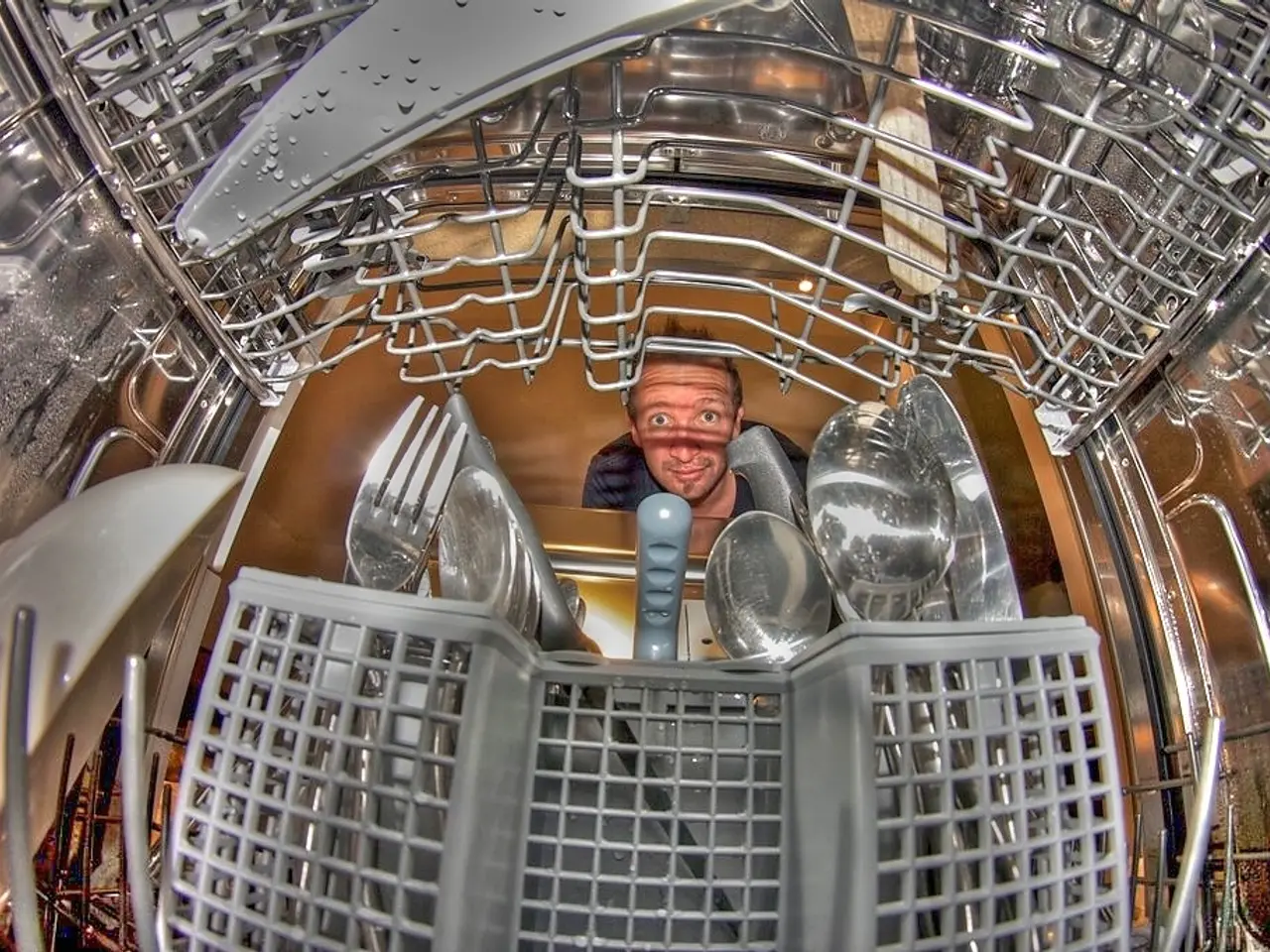Dishwasher Malfunctions: Understanding Key Causes and Solutions
In the world of modern appliances, the dishwasher is a staple in many households. However, like any other machine, it can encounter problems from time to time. Here, we'll delve into some common issues with dishwashers and provide guidance on how to address them.
Firstly, a deformed door seal or a warped dishwasher can lead to leaks. To prevent this, it's essential to read the operating instructions carefully before installation and ensure the dishwasher is correctly installed. If a leak occurs during the first use after purchasing, contact the outlet where it was bought for potential manufacturing defects.
Leaks can also be caused by a defect in the lower sprayer, which directs water onto the door. Replacing the faulty mechanism is necessary in such cases.
One of the most common issues leading to electric shocks is a faulty heating element, damaged or exposed wiring, damaged power cord insulation, moisture intrusion, or ground faults. To fix electric shocks, follow these key steps:
- Inspect the heating element, thermal fuse, and thermostat for faults and replace any defective parts. A faulty heating element is a frequent cause of shocks.
- Check the power cord and wiring insulation for damage, cracks, or wear. Do not operate the appliance if the power cord or wiring is damaged; immediately unplug it and have it repaired or replaced with genuine parts by a trained technician.
- Ensure the dishwasher is properly grounded and that GFCI (Ground Fault Circuit Interrupter) outlets or breakers are functioning correctly. GFCI trips often indicate ground faults caused by moisture or wiring issues and help prevent shocks.
- Address any moisture or leaks around the appliance that may cause electrical leakage. Keep electrical connections dry and never expose the dishwasher to steam or high-pressure cleaning methods.
- Avoid DIY repairs on electrical components, especially for major appliance issues involving high voltage. Hire a licensed professional appliance technician for diagnosis and repairs to ensure safety and compliance with codes.
If moisture or flood damage is suspected, do not use the dishwasher until a professional inspects it, as water intrusion can damage internal wiring or heating elements and increase shock risk.
For complex dishwasher breakdowns, it is recommended to seek the help of experienced technicians, such as those provided by Spark Service PRO in Davie, FL. Attempting to replace the rubber seal or pressure switch without the correct part may result in further leaks.
In summary, common causes of electric shocks include faulty heating elements, damaged wiring, and moisture-induced ground faults. Fixing requires careful inspection, replacement of damaged parts, ensuring proper grounding and GFCI protection, keeping the appliance dry, and using professional repair services for safety.
[1] Electrical Safety Foundation International [2] Consumer Reports [3] Appliance Repair Tips [4] Spark Service PRO [5] This Old House
- Maintaining a proper home-and-garden environment in your kitchen is crucial for the lifespan of appliances like dishwashers, as a deformed door seal, a warped dishwasher, or a faulty lower sprayer can lead to issues such as leaks and electric shocks.
- When it comes to home-improvement, ensuring electrical safety is of utmost importance, especially for appliances like dishwashers. This includes regular checks for damaged wiring, faulty heating elements, and moisture intrusion, as these are common causes of electric shocks and potential fires.



